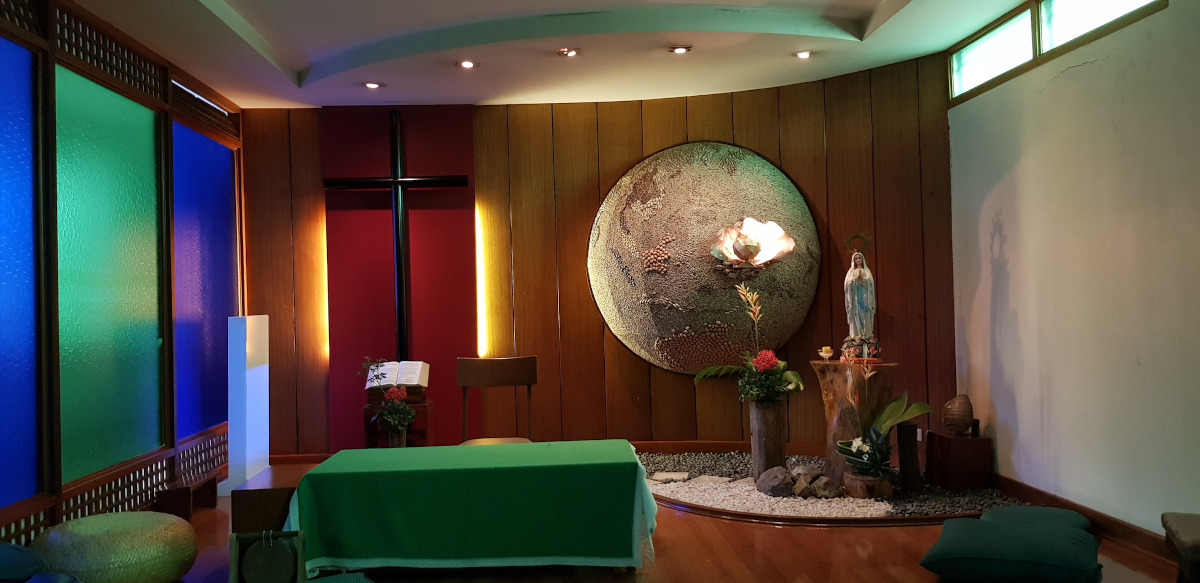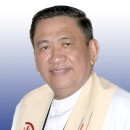 It is definitely a volatile, uncertain, complex, and ambiguous (VUCA) environment we live in today. The impact of the pandemic is scary, confusing, and unnerving, not least because nobody knows when it will end. Economies are being devastated, creating untold suffering, especially among the poor and disadvantaged.
It is definitely a volatile, uncertain, complex, and ambiguous (VUCA) environment we live in today. The impact of the pandemic is scary, confusing, and unnerving, not least because nobody knows when it will end. Economies are being devastated, creating untold suffering, especially among the poor and disadvantaged.
This is why the East Asian Pastoral Institute’s (EAPI) online course on Discerning Pastoral Responses for a New World is so relevant and important. It brought participants from Asia and the Pacific together virtually to share experiences and insights. In many ways Covid-19 has made our respective ministries strenuous and risky.
Thanks to the organisers and staff, the online course was done comprehensively, leading us to a new outlook on discipleship. It re-affirmed our experience of being grounded in our identity as disciples of the Lord Jesus, building on that intimacy through prayer and discernment. We were introduced to the new normal pastoral milieu, to search for new ways of exercising pastoral ministry, and to articulate a common and shared vision of discipleship, ministry, and mission that integrates the signs of the times.
The speakers who were very adept at facilitating the discussions enriched and confirmed our journey in this pandemic. It is a journey of faith and hope, and of re-igniting our zeal to be with the people and the Church through Basic Ecclesial Communities. The course helped enkindle the fire of a renewed sense of mission and of pastoral engagement in collaboration with the ecclesial communities, leaders, and all stakeholders. We went through the process of communal discernment, which bore fruit in our spiritual conversations.
The experience was so rich because it was Spirit-led, deeply rooted in the awareness of God’s call and presence. It was an affirmation that as a Christian community, we are one body called to serve others especially the poor and those in need. We recalled the experience of St Paul in rallying the Christian communities in Antioch and Corinth to support the Church in Jerusalem. Personally, I recalled what St Eugene de Mazenod, the founder of the Oblates of Mary Immaculate, did when the people in Marseilles had an epidemic, and how he rallied his congregation to help the sick, giving them food and any relief they could offer.
Our experience could be likened to the experience of the two disciples on the road to Emmaus; it left a fire burning in our hearts that moves us to plunge into the deep; to be like the boy with the fish and bread offered to Jesus to feed the multitude; to be like the men who brought the paralytic to Jesus for healing, in our case, of our communities, especially the poor. We were led to recall the story of the good Samaritan and how we can be brothers and sisters to those in need.
All of us, in our own initiatives and contexts, are invited to give light, to spread the message of hope, and to nurture life in collaboration with others. As Christians we are called to action and make the Kingdom of God present today. We reject the view of the Stoics that there is nothing we can do about the pandemic except to fit ourselves in. We reject the mind of the Epicurean that this is a random occurrence that will eventually pass and nothing can be done about it, so enjoy the moment. No. We are disciples; we are men and women of faith; we belong to Christ and we are one body. We reach out as one to the poor who are summoning us. The Church needs us. We can do something; together we can respond to the call of the times, an action that is Spirit-led in Christ and for the glory of the Father. This, for us Christians, is an opportunity!
 Fr Eduardo G Tanudtanud of the Congregation of the Missionary Oblates of Mary Immaculate (OMI) joined EAPI’s Sabbatical Renewal Experience programme in August 2019, Pastoral Leadership for Mission and Management programme in January 2020, and the online course on The Church in Times of Covid: Discerning Pastoral Responses for a New World from 20 October to 10 November 2020.
Fr Eduardo G Tanudtanud of the Congregation of the Missionary Oblates of Mary Immaculate (OMI) joined EAPI’s Sabbatical Renewal Experience programme in August 2019, Pastoral Leadership for Mission and Management programme in January 2020, and the online course on The Church in Times of Covid: Discerning Pastoral Responses for a New World from 20 October to 10 November 2020.

